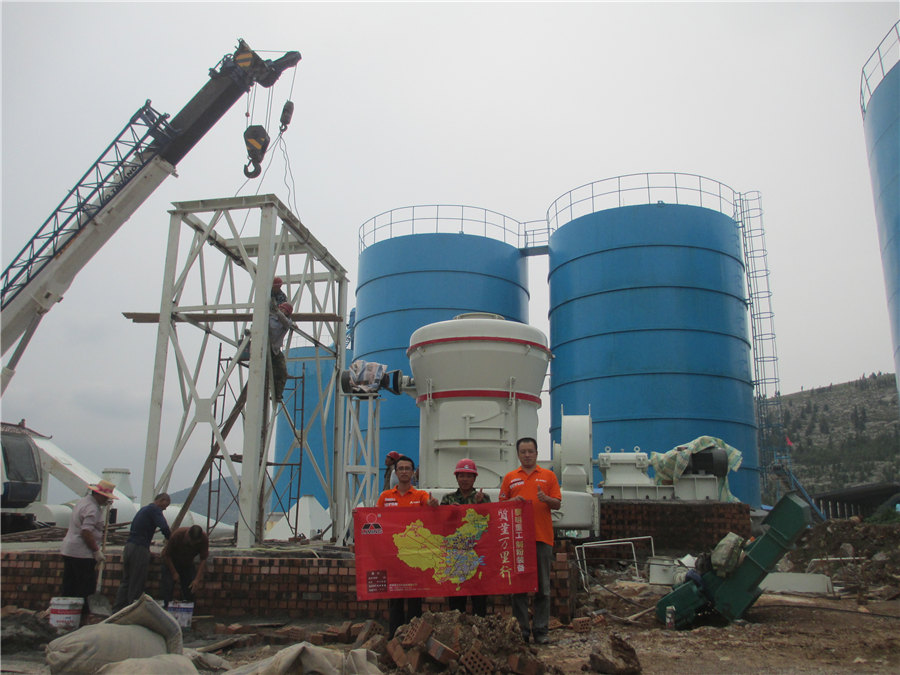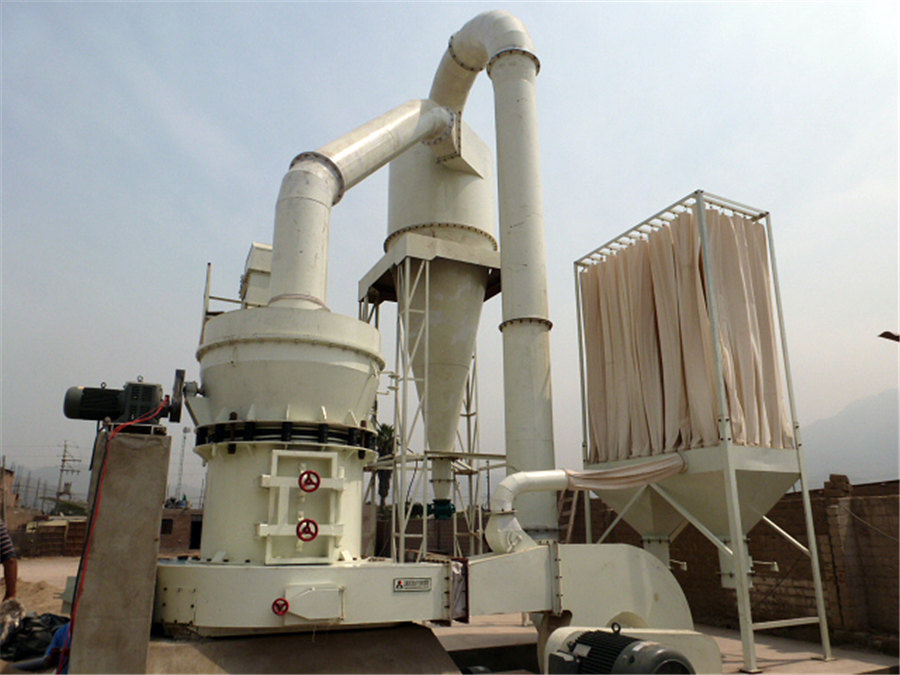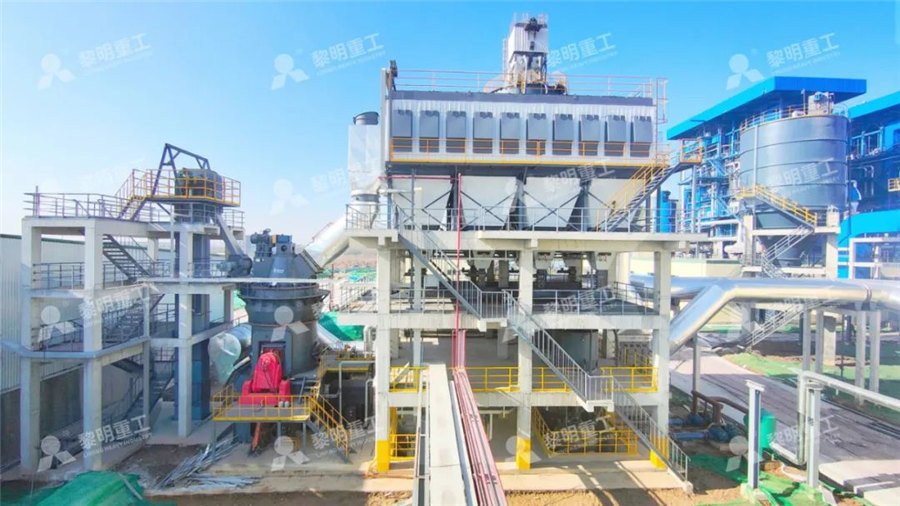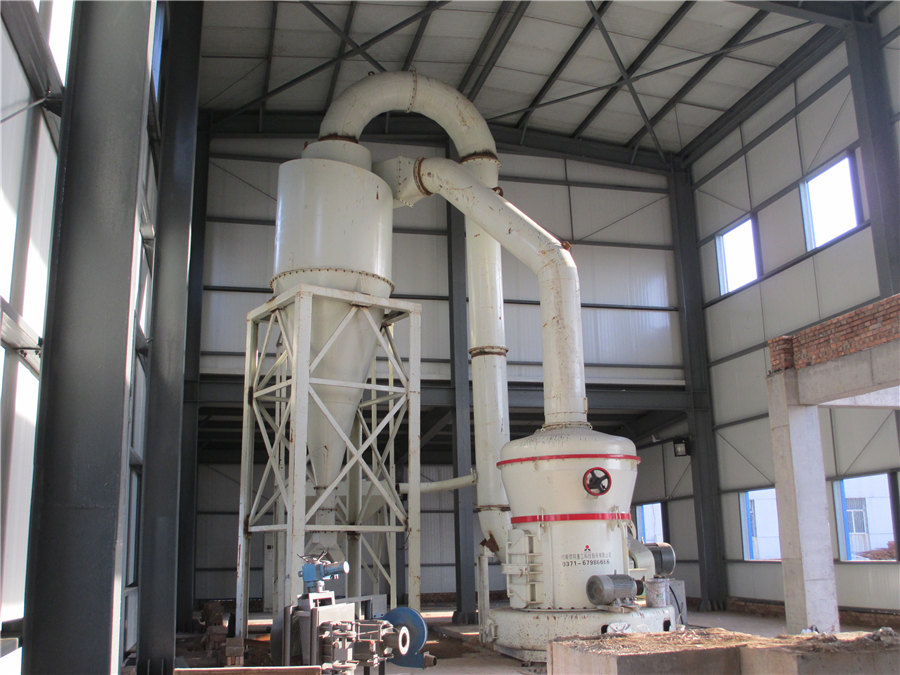
What performance does gypsum decompose when heated
.jpg)
Thermal Analysis of Gypsum 日立ハイテクグループ
Figure 2 shows the DSC measurement results for the same dihydrate gypsum For these measurements, a 30mg sample in a semihermetically sealed container was heated at a rate of 5°C/min As with the results in Figure 1, measurements in a semihermetic state result in two 1992年7月8日 With increasing thickness of this layer the resistance to gas diffusion continuously increases and the course of the QTG curves, similarly to the curves in Fig 6 becomes Thermal decomposition of gypsum ScienceDirect2023年5月15日 Physicallybound water evaporates from the starting point until around 120°C, depending on the heating rate If physicallybound water and chemicallybound water are to be Understanding gypsum in 3 diagrams2002年6月19日 In order to model the thermal behaviour of such assemblies, the thermophysical properties of gypsum plasterboard must be determined The relevant literature and the Thermal Properties of Gypsum Plasterboard at High Temperatures

Thermal properties and microstructure of gypsum board and its
22 Dehydration of gypsum When heated, gypsum takes two steps of endothermic decomposition reactions [3–5] When the first dehydration reaction occurs, CaSO 4 2H 2O is converted to 2019年4月26日 If the ambient temperature is low and the relative humidity is high, gypsum is stable and does not decompose to form any calcium sulfate hemihydrate Furthermore, Dehydration Pathways of Gypsum and the Rehydration 2024年6月15日 Gypsum (CaSO 4 2H 2 O), the primary raw material for calcined gypsum production, is formed in significant quantities during the desulphurization of thermal power New insight into the phase changes of gypsumSince gypsum is a porous material, heat transfer through gypsum is a combination of all three modes: conduction through the solid, and convection and radiation through the pores Thermal Conductivity of Gypsum at High Temperatures
.jpg)
THERMAL AND HYGRIC PROPERTIES OF GYPSUM: REFERENCE
In this paper, we present reference measurements of thermal and hygric properties of common gypsum that will be utilized for a comparison with various types of modified gypsum in the Gypsum is calcium sulphate dihydrate (CaSO 42H 2 O) When gypsum is heated to a temperature of 100 ⁰ C (373K), it loses threefourths of its water of crystallisation and forms plaster of Paris (CaSO 41/2H 2 O)What is Gypsum? What Happens When Gypsum is Heated to 2016年11月12日 $\begingroup$ Many compounds will decompose when heated even in an inert atmosphere but I wouldn't describe that as smouldering That would be burning slowly (perhaps because there isn't enough oxygen to create a vigorous flame) $\endgroup$ – mattblack Commented Nov 14, 2016 at 18:08Why don’t all objects melt and liquefy when heated sufficiently?Calcium carbonate is the principal mineral component of limestone Its chemical and physical properties lie behind the modernday uses of limestone as well as the unique limestone landscapes of the countrysideCarbonate chemistry — Science Learning Hub
.jpg)
Perlite vs Vermiculite, Fully Explained Gardening Channel
Perlite does not decompose over time because it is made from superheated volcanic rock When you add perlite to soil, Perlite is a naturally occurring volcanic rock that has been heated and crushed until it changes in color and texture Is perlite good for clay soil?Heating of Gypsum: When Gypsum(CaSO 4 2 H 2 O) is heated to a temperature of 100 o C(373K), it loses one and a half molecules of water and forms Plaster Of Paris What happens when zinc granules are heated with NaOH solution? Write the balanced chemical equation of the reaction involvedWrite a balanced chemical reaction involved in heating Gypsum at The pure gypsum salt has no defined deliquescence point If, in the presence of halite, the relative humidity levels exceed 90% RH, gypsum crystals may dissolve, due to the deliqusecent behavior of haliteA decrease of humidity levels to approximately 75% RH will result in the recrystallization of gypsum Crystallization pressure [] At crystallization in aqueous solution, with the saturation Gypsum SaltwikiStudy with Quizlet and memorize flashcards containing terms like Limestone does NOT decompose when heated to 900 K because, at 900 K, ΔH is:, When limestone is heated during Step 1, an equilibrium is established Which of the following expressions is the equilibrium constant for the decomposition of limestone?, During Reaction 2, did the oxidation state of N AAMC 4 ChemPhys Flashcards Quizlet
.jpg)
Group 1 2 Carbonates Nitrates Edexcel A Level Chemistry
2023年2月15日 Thermal decomposition of nitrates The only Group 1 nitrate that will decompose to produce nitrogen dioxide (which is a brown toxic gas) and oxygen is lithium nitrate LiNO 3; 4LiNO 3 (s) 2Li 2 O (s) + 4NO 2 (g) + O 2 (g) The rest of the Group don't decompose so completely producing the metal nitrite (NO 2) and oxygen, but no nitrogen dioxide; 2XNO 3 (s) Study with Quizlet and memorize flashcards containing terms like Limestone does NOT decompose when heated to 900 K because, at 900 K, ΔH is: A positive and less than TΔS B positive and greater than TΔS C negative and less than TΔS D negative and greater than TΔS, When limestone is heated during Step 1, an equilibrium is established Which of the following AAMC FL 4 CHEM/PHYS Flashcards QuizletCalcium carbonate (limestone or chalk) decomposes into calcium oxide and carbon dioxide when heated The chemical reaction is as follows: CaCO 3 → CaO + CO 2 The reaction is used to make quick lime, which is an industrially important product Another example of thermal decomposition is 2Pb(NO 3) 2 → 2PbO + O 2 + 4NO 2 Some oxides, especially of weakly Thermal decomposition WikipediaAction of Heat on Salts Heating a salt may cause it to decompose The decomposition may result in (a) a colour change (b) evolution of a gas (c) liberation of water vapour; Gases such as carbon dioxide, sulphur dioxide, Action of Heat on Salts A Plus Topper

What is gypsum what happens when gypsum is heated to 393k?
2020年9月27日 When gypsum is heated to a temperature of 100⁰C (373K), it loses threefourths of its water of crystallisation and forms plaster of Paris (CaSO4 1/2H2O) cookielawinfocheckboxperformance: 11 months: This cookie is set by GDPR Cookie Consent pluginStudy with Quizlet and memorize flashcards containing terms like How does steel respond when heated?, Which type of building construction is the type most commonly used to construct a typical single family residence?, Gypsum has: and moreFT101Q7 Flashcards Quizlet2024年9月19日 Gypsum is a mineral that contains calcium, sulfur, and water It has been a building material from ancient Egypt to modern Spain for thousands of years Gypsum can be found in different forms, such as sand, stone, or powder Gypsum can be used for various purposes, such as plaster, mortar, blocks, boards, or tilesGypsum: Building Uses, Attributes, Price and Design Trends2023年9月9日 Dehydration: One of the most notable chemical properties of gypsum is its ability to undergo controlled dehydration when heated When gypsum is subjected to heat, typically at temperatures ranging from 150°C to 190°C (300°F to 375°F), it loses some or Gypsum Properties, Formation, Uses and Deposits Geology
]@S0{UDKK%G24F3JGHC.jpg)
Changes in structure and composition of gypsum paste at
2020年3月19日 The structure and composition of the gypsum at elevated temperatures were studied by means of scanning electron microscopy, Xray diffraction (XRD) and thermogravimetry (TG) The gypsum paste samples were heated to the temperatures from 50 to 1000 °C The changes in the structure of gypsum were in good accordance with the changes in properties 2015年9月17日 Yes Chlorates are ionic compounds that contain the chlorate anion, "ClO"3^(), and the cation of a metal When heated, these compounds undergo decomposition to form oxygen gas, "O"2, and a metal chloride The classic example is the decomposition of potassium chlorate, "KClO"3, to oxygen gas and potassium chloride, KCl"Do chlorates decompose when heated? + ExampleFire Resistance: Gypsum releases water vapor when heated, which helps to impede fire spread and provides some fire protection in buildings Setting Properties: Depending on the processing methods, gypsum can be formulated to set quickly or slowly, making it Gypsum: Properties, Uses, Formation, Types – Geology InChemistry Practical's and Experiments on The reaction of Heating of copper sulphate crystals and classify it as physical or chemical changes with detailed instructions, safety advice and background information Chemistry Practical Experiment on the reaction of Heating of copper

Thermal Decomposition of Nitrates Carbonates
2023年2月17日 Thermal decomposition is the breakdown of a compound into two or more different substances using heat Thermal decomposition of carbonates The Group 2 carbonates break down (decompose) when they are heated to form the metal oxide and give off carbon dioxide gasThe general equation for the decomposition of Group 2 carbonates is:2019年6月9日 So just wondering, copper(II) hydroxide undergoes thermal decomposition when it's heated But isn't it a solid by itself too? Why does it turn into another solid and water if heating is done excessively,then the oxide itself can decompose to a variety of products Share Cite Improve this answer Follow answered Jun 9, 2019 What happens to copper(II) hydroxide when it's heated? what's All nitrates salts decompose when heated Table below shows the products formed when different nitrate salts are heated Nitrate Salt: Equation of The Reaction : Ammonium nitrate: Ammonium nitrate decompose to nitrogen monoxide and water vapour when heated NH 4 NO 3 6102 Effect of Heat on Salts RevisionmyQ Assertion: When limestone is heated strongly, it gives off C O 2 In metallurgy, this process is known as calcination Reason: Limestone is heated strongly in the presence of airWhat happens when limestone is heated strongly? Chemistry

Gypsum Chemical Formula, Properties, Types, Uses and FAQ
The main components of gypsum are calcium sulfate (CaSO 4) and water (H 2 O) Its chemical name is Calcium Sulphate Dihydrate and the chemical formula of gypsum is represented as CaSO 42H 2 O Gypsum and Anhydrite (CaSO 4) are very similar chemically just that gypsum has 2 water molecules and Anhydrite does not contain any water molecules2012年8月14日 All nitrates salts decompose when heated Table below shows the products formed when different nitrate salts are heated Nitrate Salt: Equation of The Reaction : Ammonium nitrate: Ammonium nitrate decompose to nitrogen monoxide and water vapour when heated NH 4 NO 3 → N 2 O + 2H 2 OHeating Effect on Carbonate Salts SPM Chemistry2024年3月26日 This means it requires less heating to decompose Other Group 1 metal carbonates will not decompose at the temperature reached by a Bunsen burner For example, potassium carbonate decomposes at 1200 °C K 2 CO 3 (s) → K 2 O (s) + CO 2 (g) Copper, zinc and calcium carbonate will decompose at the temperature that a Bunsen burner will reachThermal Decomposition of Metal Carbonates Oxford AQA IGCSE 2014年8月7日 The thermal decomposition of metal carbonates produces metal oxides and carbon dioxide Examples are CaCO₃ → CaO + CO₂ and CuCO₃ → CuO + CO₂ It takes a lot of energy to decompose the carbonates of metals that are high in the reactivity series (such as sodium and magnesium) In fact, most of the Group 1 metal carbonates do not decompose at What do carbonates produce when decomposed? + Example
.jpg)
What is Gypsum? What Happens When Gypsum is Heated to
Gypsum is calcium sulphate dihydrate (CaSO 42H 2 O) When gypsum is heated to a temperature of 100 ⁰ C (373K), it loses threefourths of its water of crystallisation and forms plaster of Paris (CaSO 41/2H 2 O)2016年11月12日 $\begingroup$ Many compounds will decompose when heated even in an inert atmosphere but I wouldn't describe that as smouldering That would be burning slowly (perhaps because there isn't enough oxygen to create a vigorous flame) $\endgroup$ – mattblack Commented Nov 14, 2016 at 18:08Why don’t all objects melt and liquefy when heated sufficiently?Calcium carbonate is the principal mineral component of limestone Its chemical and physical properties lie behind the modernday uses of limestone as well as the unique limestone landscapes of the countrysideCarbonate chemistry — Science Learning HubPerlite does not decompose over time because it is made from superheated volcanic rock When you add perlite to soil, Perlite is a naturally occurring volcanic rock that has been heated and crushed until it changes in color and texture Is perlite good for clay soil?Perlite vs Vermiculite, Fully Explained Gardening Channel

Write a balanced chemical reaction involved in heating Gypsum at
Heating of Gypsum: When Gypsum(CaSO 4 2 H 2 O) is heated to a temperature of 100 o C(373K), it loses one and a half molecules of water and forms Plaster Of Paris What happens when zinc granules are heated with NaOH solution? Write the balanced chemical equation of the reaction involvedThe pure gypsum salt has no defined deliquescence point If, in the presence of halite, the relative humidity levels exceed 90% RH, gypsum crystals may dissolve, due to the deliqusecent behavior of haliteA decrease of humidity levels to approximately 75% RH will result in the recrystallization of gypsum Crystallization pressure [] At crystallization in aqueous solution, with the saturation Gypsum SaltwikiStudy with Quizlet and memorize flashcards containing terms like Limestone does NOT decompose when heated to 900 K because, at 900 K, ΔH is:, When limestone is heated during Step 1, an equilibrium is established Which of the following expressions is the equilibrium constant for the decomposition of limestone?, During Reaction 2, did the oxidation state of N AAMC 4 ChemPhys Flashcards Quizlet2023年2月15日 Thermal decomposition of nitrates The only Group 1 nitrate that will decompose to produce nitrogen dioxide (which is a brown toxic gas) and oxygen is lithium nitrate LiNO 3; 4LiNO 3 (s) 2Li 2 O (s) + 4NO 2 (g) + O 2 (g) The rest of the Group don't decompose so completely producing the metal nitrite (NO 2) and oxygen, but no nitrogen dioxide; 2XNO 3 (s) Group 1 2 Carbonates Nitrates Edexcel A Level Chemistry
.jpg)
AAMC FL 4 CHEM/PHYS Flashcards Quizlet
Study with Quizlet and memorize flashcards containing terms like Limestone does NOT decompose when heated to 900 K because, at 900 K, ΔH is: A positive and less than TΔS B positive and greater than TΔS C negative and less than TΔS D negative and greater than TΔS, When limestone is heated during Step 1, an equilibrium is established Which of the following Calcium carbonate (limestone or chalk) decomposes into calcium oxide and carbon dioxide when heated The chemical reaction is as follows: CaCO 3 → CaO + CO 2 The reaction is used to make quick lime, which is an industrially important product Another example of thermal decomposition is 2Pb(NO 3) 2 → 2PbO + O 2 + 4NO 2 Some oxides, especially of weakly Thermal decomposition Wikipedia













